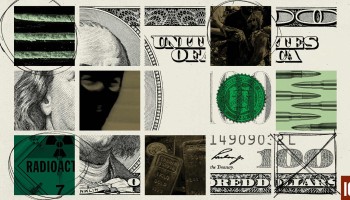The Department of Justice is looking into allegations that the company paid bribes in the 1980s and 1990s to secure a €54 billion arms deal with Saudi Arabia. Department investigators week before last served Nigel Rudd, a director at BAE, with a subpoena and briefly questioned at New Jersey’s Newark Airport when he stopped for a layover en route to a holiday in Florida. The same week, chief executive Michael Turner was detained at Houston’s George Bush International Airport while on BAE business and issued with a subpoena. Investigators also examined his laptop computer and BlackBerry. Both executives were released after being questioned.
The multi-billion-dollar al-Yamamah deal was signed in the 1980s but continued into the 1990s. It involved BAE selling Tornado and Hawk jets, as well as other weapons, to the Saudis, and included lucrative and long-running maintenance and training contracts.
Britain’s Serious Fraud Office dropped its own investigation into the case in 2006; the attorney general at the time said the inquiry would have caused “serious damage” to UK-Saudi relations and thus threatened national security.
London’s High Court has since ruled that the Office acted unlawfully in abandoning the case.
US officials have pressed ahead, announcing in June 2007 that the Department of Justice would investigate whether BAE’s business deals with the Saudis complied with anti-corruption laws. The US’s interest is reckoned to stem from BAE’s use of the US banking system to transfer payments to accounts controlled by Prince Bandar, a senior figure in the Saudi royal family.
More Snapshots from the FinCEN Files
A selection of additional findings from the FinCEN Files by OCCRP reporters and member centers. Watch this space for more in...





